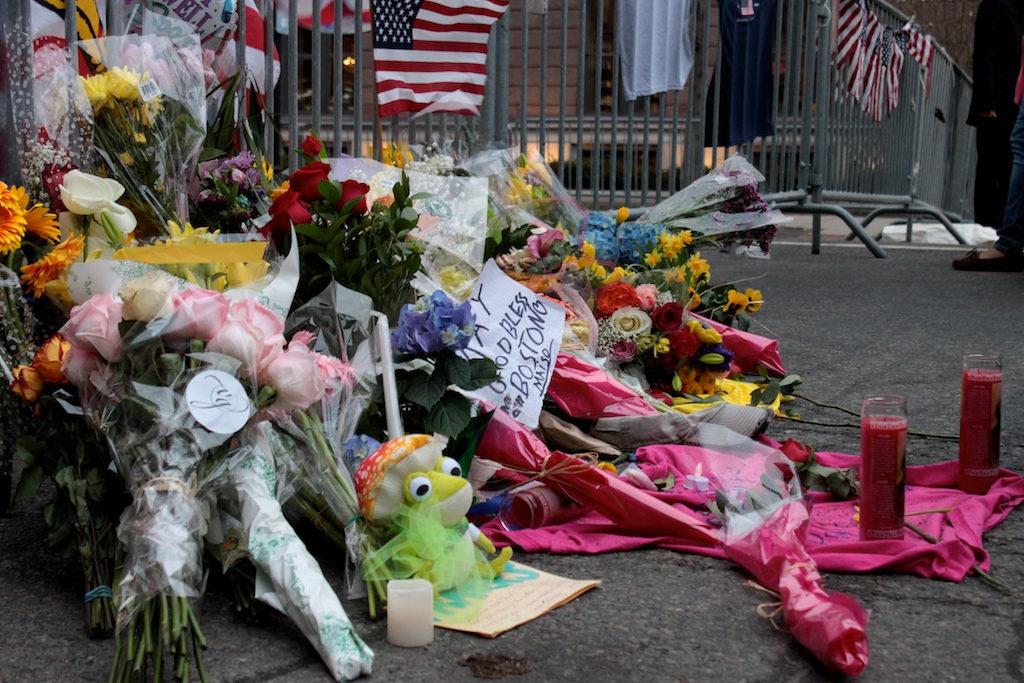By Alexander LaCasse, news correspondent
By the time US Government prosecutors rested their case against Boston Marathon bomber Dzhokhar Tsarnaev’s friend Robel Phillipos on Wednesday afternoon, a mountain of evidence had been presented to demonstrate that Phillipos was sober enough to recall his actions the night of April 18, 2013.
Phillipos, 21, of Cambridge, is charged with two counts of lying to authorities by removing a backpack containing Tsarnaev’s belongings from his University of Massachusetts (UMass) Dartmouth dorm room. On the night of April 18, Phillipos, along with two of their friends, Azamat Tazhayakov and Dias Kadyrbayev, allegedly went into the Pine Gales dorm on the UMass Dartmouth campus and removed the backpack, which contained an empty fireworks canister.
Tazhayakov and Kadyrbayev both pleaded guilty to obstruction of justice charges in July. Tazhayakov is facing up to 25 years in prison for his role. Kadyrbayev pleaded guilty in exchange for receiving no more than seven years. Phillipos’ defense has maintained that he was “high out of his mind” and has no memory of his activities the night of the 18th.
“I think marijuana sounds like a somewhat better defense,” Northeastern journalism law professor Laurel Leff said. “Dan White’s [the man who murdered San Francisco Mayor George Moscone and Harvey Milk] defense was that he was hopped up on Twinkies.”
Over the course of five days last week, the government laid out a case in which Tazhayakov testified that Phillipos was in control of his decisions and had contributed to the discussion about how to dispose of the backpack. According to Tazhayakov’s attorney, Matthew Myers, he has signaled he will also agree to testify about his relationship with Tsarnaev before he is due to be sentenced this week.
Northeastern students did not agree with the “high out of his mind” defense.
“I really don’t see this as a viable defense,” Jon Santina, a senior economics major, said. “Would Tsarnaev have been let off if he claimed he was too high when he agreed to leave a backpack with a bomb in it at the finish line? You need to be responsible for your actions.”
Pat McCaffrey, a senior marketing major, agreed that Phillipos should assume full legal responsibility.
“You’re responsible for what you put in your body, and you’re responsible for the actions you do under the influence of that substance,” McCaffrey said. “I don’t think being high should be a cop-out.”
When the trial resumed on Tuesday, the US Government presented the text messages between Phillipos and Tsarnaev as part of its effort to disprove Phillipos’ defense.
That morning, Phillipos left his home for UMass Dartmouth, where he met up with his former suitemate Quan Le Phan. He was scheduled to go to a marijuana disciplinary hearing. Claiming he smoked “at least half a dozen times” later that night, he joined his friends Azamat Tazhayakov and Dias Kadyrbayev after learning Tsarnaev had been named one of the marathon bombing suspects.
Later that night, Phillipos called Phan and asked to be picked up from Tazhayakov’s apartment in New Bedford, after the three had allegedly discussed what to do with Tsarnaev’s backpack.
“His voice seemed to be in a rush, in a sense of urgency,” Phan said when asked about Phillipos’ demeanor over the phone later that night.
When asked by a government prosecutor, Myers said, “They were friendly like they had been friends in high school.”
The backpack would be recovered from a New Bedford landfill on April 25 by an FBI team led by special agent Kenneth Benton, who also testified on Tuesday. According to Benton, his search team sorted through hundreds of tons of garbage at a New Bedford landfill to find the backpack.
The defense questioned Phan if he could specifically remember Phillipos telling him anything about being in Tsarnaev’s dorm that night, or if he was nervous about not including it in either or his two conversations with FBI investigators. Phan said he did not recall.
Before Phan was presented to the jury, the US Government put FBI Special Agent James Scripture on the stand. Scripture headed the task of pulling all the incoming and outgoing text messages off of Phillipos’ iPhone. Part of the texts presented included one from Phillipos to Tsarnaev’s phone asking him, “Where you at bird?” later on the evening of the 18th.
The defense countered by pressing Scripture on why he was never asked to search for the word “fireworks” during the course of his data mining.
“It would have been important for you to search for relevant text messages to the items that were alleged to be in the backpack,” defense attorney Susan Church said to Scripture.
The defense also directed the cross-examination of Scripture to get him to state in multiple forms that he had no direct involvement in the selection of texts for the prosecution to use.
“It was the prosecution that decided what went in the spreadsheet,” Scripture said. “I was told to provide important dates and the activity that went on.”
Phillipos’ lawyers originally requested a change in the trial’s venue, given the heightened attention regarding any case involving the marathon bombings. According to Leff, that may have been a reasonable request on the part of the defense, but the request was denied.
“It’s true wherever the trial is, there is going to be coverage,” she said. “I think here it’s both the extent of the coverage in the Boston area, and then also just the feelings the city has about the marathon that it seems to me that the better course of action was to change the location.”
The trial continued Wednesday afternoon with the first two defense witnesses who were former classmates at UMass with Phillipos. The defense will continue to present witnesses on Thursday.
Photo by Taylor Dobbs, news staff









